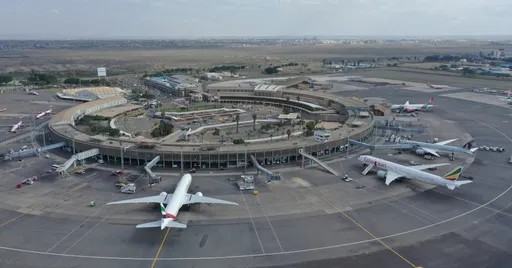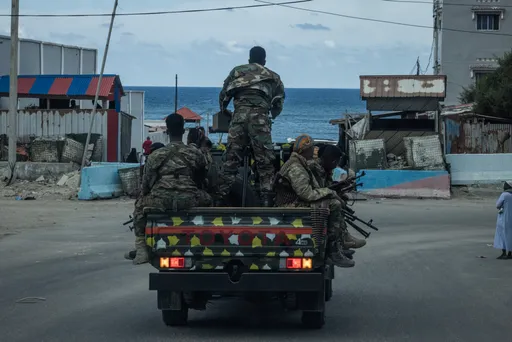By Sylvia Chebet
For months, Happy Ntsibande dreaded the very medication his life depended on. The 50-year-old father of three was battling drug resistant tuberculosis (TB) whose treatment could stretch for nearly 2 years.
"I was taking up to 24 pills daily, including a powder drink in a sachet called Palser – a syrup that tastes so bad, it cannot go down without a yogurt," Happy tells TRT Afrika.
That was back in 2018. Weeks of the torturous medication felt like eternity, a journey with no end in sight.
He would be transferred to government-run Sizwe Hospital in Johannesburg when his doctor at Southern Hospital died from the most serious strain of TB known as Extensively Drug Resistant TB (XDR-TB).
Trauma
He was still reeling from the trauma of losing his doctor when researchers from Witwatersrand University and TB Alliance, a non-profit drug developer, asked to enroll him in a clinical trial for a new TB regimen.
The promise of a shorter treatment period, with far less pills than he was taking was impossible to resist. And so Happy joined the 'ZeNix-TB' trial which was also being carried out concurrently in Russia, Georgia and Moldova.
The huge global TB burden has got scientists seeking more effective, less toxic and shorter regimens to ensure more people get to complete treatment.
Drug resistant TB
According to the latest Global Tuberculosis Report, TB killed 1.3 million people in 2022, becoming the world's second leading infectious killer after COVID-19 (above HIV/AIDS). It further shows that more than 10 million people fall ill with TB every year.
TB is an airborne disease spread by coughing or sneezing. It is a difficult infection to cure, requiring patients to take a combination of medicines for at least four to six months.
Patients can however develop resistance to the TB drugs if they skip or fail to complete the full course of treatment.
"Drug-resistant variants are just as contagious. When drug-resistant TB enters a household, everyone is at risk," Dr Moronfolu Olugbosi, Senior Director of Clinical Development at TB Alliance, tells TRT Afrika.
Open secret
Globally, an estimated 410,000 people developed multidrug-resistant TB (MDR-TB) in 2022 but only about two in five patients were successfully treated.
According to Dr. Olugbosi, it is an open secret why many patients fell off the grid.
"Treatment options were limited, expensive and lengthy – requiring patients to take more than 20 pills per day for 9-20 months."
After the ZeNIX-TB trial, WHO sought to find out how the regimen performed with patients outside clinical trials.
These trials were conducted in Indonesia, Kyrgyzstan, Philippines, Uzbekistan, and Vietnam – countries with a high burden of drug-resistant TB infections.
Effective treatment
The results presented at the Union Conference on Lung Health in Paris in November indicated regimen had a cure rate of 95% for 319 patients who had finished treatment and post-treatment monitoring.
"Today, health systems can provide the BPaL regimen to patients with confidence that the treatment will be followed to its conclusion and that it will be effective," Dr. Olugbosi from TB Alliance says.
Having tasted both the old and the new regimens, Happy says the difference is phenomenal. "It made my stay at Sizwe Hospital very comfortable and easy. I started to enjoy my TB treatment."
His 24 pills a day drastically reduced to five pills for three days in a week, and only two pills on each of the remaining four days. The cherry on top was that he was required to take these fewer pills for only six months.
'No side effects'
"I don't remember myself suffering from any side effects from the new regimen," Happy says, adding that since he completed treatment in 2019, "I'm still TB-free."
"Before BPaL, treatment for many forms of drug-resistant TB lasted up to 18 months or longer, and required injections alongside thousands of pills—with cure rates that were barely more than 50%," Dr. Olugbosi explains.
The roll-out of the BPaL regimen is helping to tackle drug-resistant TB, which the WHO has described as a public health crisis and a health security threat.
Experts attribute the success of the BPaL to the shorter, simpler, and easy-to-tolerate regimen. Dr. Olugbosi says: "This will lead to more people completing treatment and more people being cured."
More research
WHO data indicates 40 countries had started to use the new six-month regimen to treat people with drug-resistant TB by the end of 2022.
Meanwhile, more research is being conducted to develop even more palatable and shorter and treatments for all forms of TB.
Dr Tedros Adhanom Ghebreyesus, the Director-General of the World Health Organization, is hopeful that with the development of new diagnostics, vaccines and treatments, TB could be eradicated.
"For millennia, our ancestors have suffered and died with tuberculosis, without knowing what it was, what caused it, or how to stop it," the WHO chief says.
"Today, we have knowledge and tools they could only have dreamed of. We have political commitment, and we have an opportunity that no generation in the history of humanity has had: the opportunity to write the final chapter in the story of TB."
Low funding
While the future is promising, political goodwill still seems intermittent. TB funding in low and middle-income countries has been far below target since 2019.
Only $5.8 billion was available for provision of TB diagnosis, treatment and prevention services in 2022, less than half the $13 billion target. Investment in TB research averaged just under $1 billion per year, also less than half the $2 billion target in the Global Plan.
"Ending TB by 2030—or any date—is simply a matter of political willpower. It can be done – but only with adequate global investment, " Dr. Olugbosi observes, adding: “Advances like BPaL show what's possible and give us all hope."
On her remarks accompanying the 2023 Global Tuberculosis Report 2023, WHO's global TB programme director Dr Tereza Kasaeva stated: "We need all hands on deck to make the vision of ending TB a reality."
➤Click here to follow our WhatsApp channel for more stories.




















.JPG?width=512&format=webp&quality=80)


